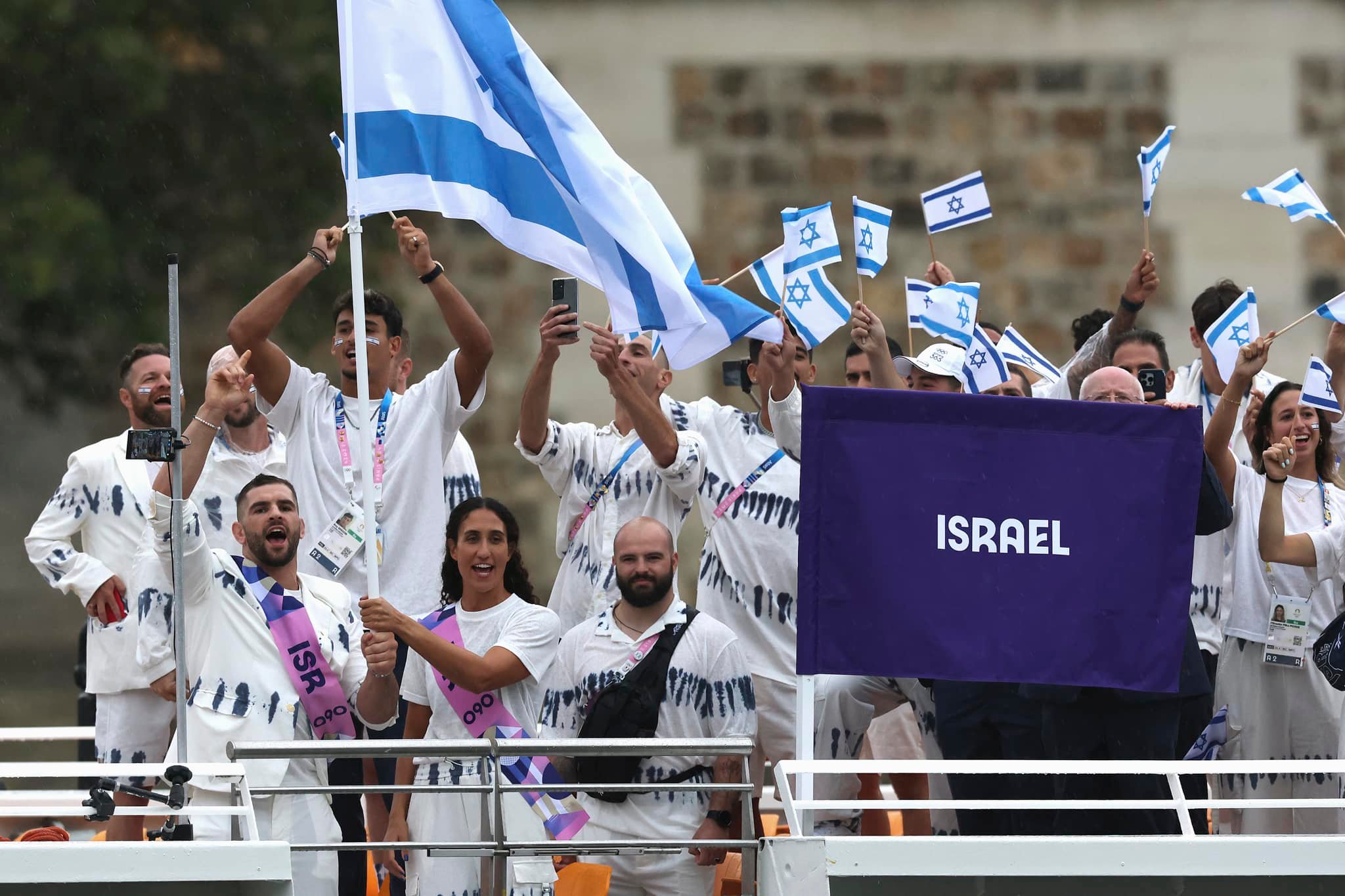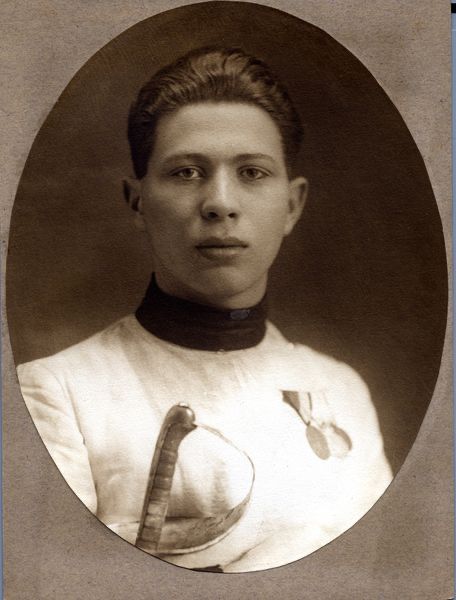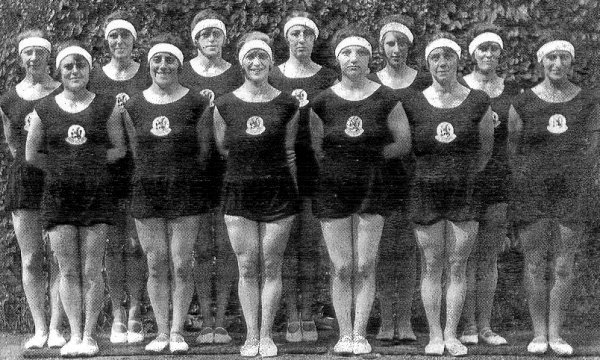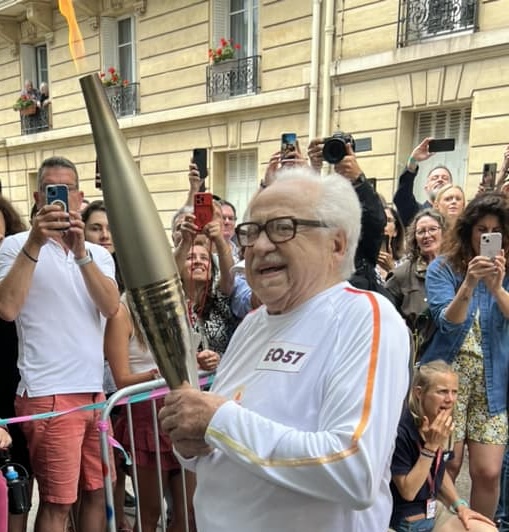Remembering the Grim Legacy of Antisemitism at the Olympics
International March of the Living calls for Olympics to banish antisemitism, live up to its ideal of building a better world

As the world attention turns to the start of the 2024 Paris Olympics, International March of the Living, together with the Jewish world, notes the grim prevalence of virulent and deadly antisemitism that too often marked the Olympic Games and its Jewish athletes during the 20th century.
The 1936 Berlin Summer Olympics saw a virtual ban on almost all German Jewish athletes, and was used by Nazi Germany as a propaganda vehicle to hide the vicious antisemitic laws they were implementing. Nevertheless, Jewish athletes still managed to distinguish themselves at the games. At least 13 Jewish athletes from different countries received medals in the face of overt hostility and attempts to exclude them.

1936 Berlin Olympics crowd giving the Nazi salute
During the Shoah, some 30 Jewish Olympians from Nazi occupied Europe were murdered in the death camps and other locations of torture throughout Europe.
Among them was Tunisian-born Victor “Young” Perez, a French Jewish boxing champion who was deported to Auschwitz in 1943. Perez was forced to participate in boxing matches for the amusement of the Nazis and survived 140 bouts in 15 months of which he won 139, according to Agnes Grunwald-Spier in her book, “Who Betrayed the Jews?. Perez was murdered on a death march – he was shot by an SS guard trying to share his bread with his fellow prisoners.

Another of those murdered was Attila Petschauer, gold medalist Jewish fencer from Budapest. According to Robert Rozett of Yad Vashem, Petschauer slapped a military officer who voiced an anti-Semitic slur. He was deported to a forced-labor unit and then the Davidovka concentration camp in Ukraine. His torturous and infamous death came about when Petschauer was ordered to undress and climb a tree, then was doused with water in the freezing air, where he was left to stay naked, freezing him to death.

Gold medalist Dutch Jewish gymnast Judikje “Jud” Simons, ran an orphanage in Utrecht, in the Netherlands, with her husband before the war. When offered a chance to escape deportation to the death camps, Simons and her husband refused to abandon their orphans. On March 3, 1943, their entire family and dozens of children from the orphanage were murdered at Sobibor. Their story was similar to the choice and fate of Janusz Korczak, the Warsaw doctor and orphanage director who refused to abandon his orphans in the Warsaw Ghetto, and instead accompanied to their deaths at Treblinka.

1928 Summer Olympic Dutch Gold medal gymnastic team. Judikje “Jud” Simons is third from the right.
One of the most infamous incidents in Olympic history occurred in the 1972 Olympics in Munich, Germany which saw the murder of 11 members Israeli Olympic team orchestrated the Palestinian terrorist group Black September. One of the 11 Israelis killed at Munich, weightlifting judge Yakov Springer, was a Holocaust survivor. Yet, the 1972 Olympic games still continued on, in a decision that was widely criticized.
As we so often do on the March of the Living, we turn the words and example of our Holocaust survivors for their courage and resilience.
On July 15, 2024, 11 days before the official start of the 2024 Paris Olympic Games, 94 year old Holocaust survivor Léon Lewkowicz carried the Olympic flame to Paris. The date commemorated the 1942 Vélodrome d’Hiver (Winter Cycling Track) roundup, which was the largest French mass arrest of Jews during the Holocaust. It took place at the Vélodrome d’Hiver an indoor sporting arena in Paris’s fifteenth arrondissement. On July 16–17, 1943, French authorities carried out the mass arrest of approx. 13000 Jewish men, women and children, most of whom perished in Auschwitz.

Léon Lewkowic was deported to Auschwitz-Birkenau at the age of 15, and survived the Death Marches. On his return to France in 1945, Léon was taken in by the OSE (Children Relief Organization). Weighing only 33 kilos, he made a promise to himself that no one would ever terrorize him again. Léon Lewkowic later became known as the strongest man in France, and at 19 years of age, was crowned the French weightlifting champion. In 2024, Léon was chosen by French authorities to carry the Olympic flame – in the same city that abandoned its Jewish population 80 years prior.
“As a survivor of the Death Marches, I won’t let the 200-meter Olympic relay stop me,” Leon proudly said.
Scott Saunders, CEO of International March of the Living, observed:
“This year, the Israeli team with 88 athletes representing the Jewish state – one of its largest delegations – will compete in 15 different sports at the Paris Olympics. There are also a number Jewish athletes attending from a variety of other countries. Yet all of this is taking place amidst heightened security in an overtly anti-Israel and antisemitic atmosphere.”
Let us hope that one day the Olympics will finally rid itself of the scourge of antisemitism and live up to the Olympic Games’ ideals of “excellence, respect and friendship… with a view to building a better world.”








